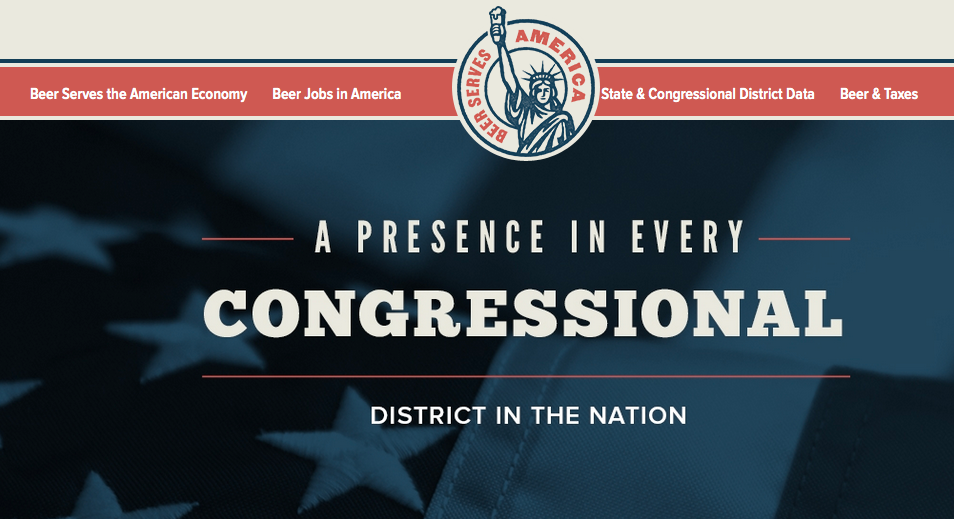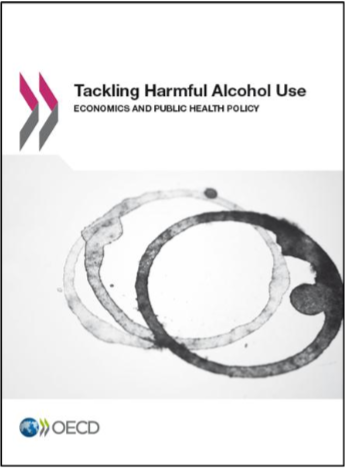Blog
"Beer Serves America" release ignores harm & costs
- Details
- Created: Wednesday, August 12 2015 14:35

A few items not contained in the beer industry's legislative and media campaign: Alcohol-related harm and how much it costs taxpayers, youth, and communities.
Excessive alcohol consumption cost the United States $223.5 billion, or about $1.90 per drink, in 2006. That's $746 for every man, woman, and child in the U.S. - and a conservative one. Direct costs to government were $94.2 billion (42%). Immediate and chronic medical care, emergency services, law enforcement, criminal justice, and job productivity are all negatively impacted.
About 76% of the total costs were due to binge drinking. Beer accounts for two-thirds of all alcohol consumed by binge drinkers, and for the most alcohol consumed by those at greatest risk for causing or incurring alcohol-related harm.
Excessive drinking accounted for 1 in 10 deaths among working-age adults age 20-64 years, and shortened those lives by about 30 years. Nearly 70% of deaths from excessive drinking involved working-age adults, and about 70% involved males
In addition, the U.S. beer excise tax has lost 45% of its value since it was last changed in 1990. But the campaign(s) continue pushing for beer excise tax reductions for various segments of the industry - there are currently 3 federal proposals to reduce beer taxes that offer the Beer Institute and NBWA opportunity to lobby and influence legislators. Anheuser-Busch InBev (Beer Institute member) spent $3.68 million lobbying in 2014. Beer Institute spent more than $2.1 million, and NBWA spent $1.28 million, lobbying - mostly on beer taxes.
What those lobbyists won't share at their meetings and socials is that the beer industry's economic lens is out of focus. Whether it's called Big Beer or craft, or both, beer is a major player in alcohol harm and related costs to taxpayers. Where are those numbers in the describing beer's economic impact?
Actress, breast cancer survivor announces wine brand
- Details
- Created: Wednesday, August 12 2015 14:38
August 12, 2015

After years of advocating for a cure, breast cancer survivor and actress Olivia Newton-John announced her new wine line, promising to donate 20% of the net profits to (her) breast cancer charity. Ten percent of proceeds from the sale of her wine will go to the Olivia Newton-John Cancer & Wellness Centre, and 10% will go to a branded breast and prostate cancer awareness campaign.
Newton-John's health and marketing advisers must have missed the memo. The evidence is clear: alcohol consumption is a major risk factor for breast cancer. In fact, researchers from Cancer Council Australia recently published a study finding more than 1 in 5 of the nation's cases of breast cancer were linked to alcohol consumption, and that the risk of alcohol-related cancer increased with every drink consumed.
Alcohol use is a leading cause of cancer – and one of the largest avoidable risk factors – even when used moderately. There is no determined safe threshold for alcohol consumption and cancer risk.
Promoting alcohol with breast cancer awareness is misleading and yet another example of pinkwashing, a term coined by Breast Cancer Action to describe a company or organization that claims to care about breast cancer by promoting a pink ribbon product, but at the same time produces, manufactures, and/or sells products that are linked to breast cancer.
Read our fact sheet on alcohol and cancer risk here.
Effective alcohol policies: New OECD report
- Details
- Created: Monday, July 27 2015 13:06

A new report from the Organization for Economic Cooperation and Development (OECD), Tackling Harmful Alcohol Use: Economics & Public Health Policy, describes the health, social, and economic impacts of key policy options for addressing alcohol-related harm. It also illuminates the potential of policies such as increased alcohol taxes, regulation of promotion and advertising, and tighter enforcement of regulations, to prevent alcohol-related disabilities and injuries, with major potential gains in health, longevity and productivity.
The mission of the 34-member OECD is to promote public policies to improve social and economic well-being around the world. Read more here about how OECD has included alcohol policy as part of its work.
More Articles ...
Subcategories
Help us hold Big Alcohol accountable for the harm its products cause.
| GET ACTION ALERTS AND eNEWS |
STAY CONNECTED    |
CONTACT US 24 Belvedere St. San Rafael, CA 94901 415-456-5692 |
SUPPORT US Terms of Service & Privacy Policy |


